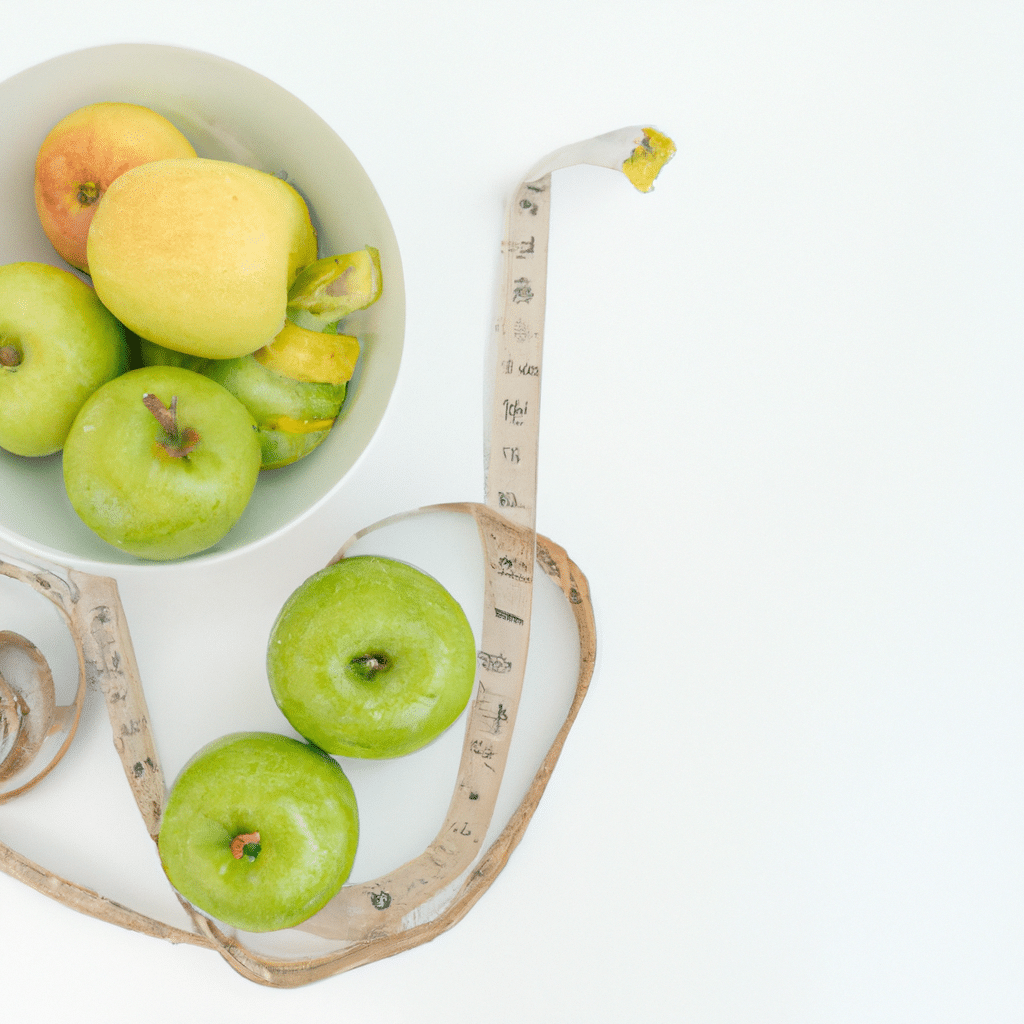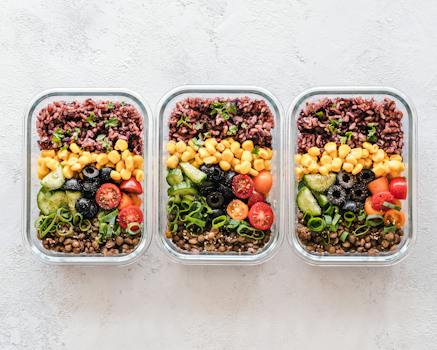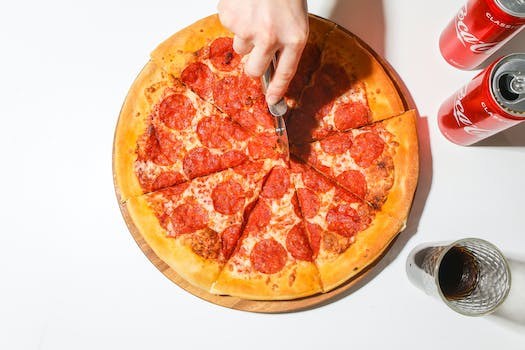
When it comes to slimming down, “clean eating” has recently become all the rage. Many people doubt that switching to a healthy diet can help them lose weight. The impact of clean eating on weight loss is the topic of this essay. Let’s dive in and see if we can determine if clean eating can help you lose weight.
- 1. Introduction
- 1.1. Definition of clean eating
- 1.2. Benefits of clean eating
- 1.3. Link between clean eating and weight loss
- 2. Principles of Clean Eating
- 2.1. Choose whole foods
- 2.2. Eliminate processed foods
- 2.3. Focus on fruits and vegetables
- 2.4. Prioritize lean proteins
- 2.5. Avoid added sugars and unhealthy fats
- 3. How Clean Eating Can Aid Weight Loss
- 3.1. Promotes a calorie deficit
- 3.2. Increases nutrient intake
- 3.3. Reduces cravings
- 3.4. Improves digestion
- 3.5. Boosts metabolism
1. Introduction
Clean eating is a trendy approach to nutrition that focuses on consuming entire, unadulterated foods. Fruits, vegetables, lean meats, whole grains, and healthy fats are highlighted, whereas processed foods, added sugars, and artificial chemicals are discouraged. A lot of individuals try clean eating to boost their health, but does it also aid in weight loss? In this post, we’ll discuss the idea of clean eating and its relevance to weight control.
1.1. Definition of clean eating
Clean eating is a way of eating that promotes the use of natural, unrefined foods while discouraging its processed counterparts. Fruits, vegetables, lean proteins, whole grains, and healthy fats are highlighted, as are their minimally processed versions. Eating clean also means limiting or avoiding things like added sugar, salt, and preservatives. Eating clean means consuming meals that are high in nutrients and are good for your health as a whole. Although clean eating is not exclusively about weight loss, it can be helpful for people on a weight loss journey because it promotes the consumption of whole, nutritious meals while limiting the intake of processed, fatty, and sugary foods.
1.2. Benefits of clean eating
The term “clean eating” refers to a way of eating that emphasizes eating foods in their natural, unaltered states. By adopting a clean eating diet, you can considerably boost your overall health and potentially aid in weight loss.
Clean eating is beneficial since it encourages the intake of foods that are high in nutrients. Whole fruits and vegetables, lean proteins, whole grains, and healthy fats are all cornerstones of a clean eating diet. Vitamins, minerals, and antioxidants abound in these meals, helping to strengthen your immune system and promote better health in general.
Clean eating also aids in portion management, which is essential for reducing calorie consumption. Clean eating might help you feel full for longer because it prioritizes whole foods, which tend to be lower in calories and higher in fiber. This can help you control your eating and lose weight.
In addition, eating healthily can increase your stamina and productivity in the gym. You can keep your body running smoothly and at peak performance by feeding it healthy foods. This has the potential to boost energy levels, mental clarity, and performance in physical activities.
In conclusion, eating clean has several advantages for your health and weight loss efforts. You may get the nutrients you need, keep your portion sizes in check, and boost your health simply by prioritizing whole, unprocessed foods and avoiding processed goods.
1.3. Link between clean eating and weight loss
The term “clean eating” refers to a way of eating that emphasizes eating foods in their natural, unaltered states. Fruits, vegetables, lean proteins, whole grains, and healthy fats are emphasized, whereas soda, processed snacks, and meals high in saturated fat and added sugars are restricted or avoided. The focus on nutrient-dense meals and portion management makes clean eating a popular strategy for weight loss, even though it is not a weight loss diet in and of itself. A calorie deficit, necessary for weight loss, can be achieved through the adoption of a clean eating habits. Additionally, clean eating increases overall health and well-being, which can indirectly contribute to weight loss by reducing the risk of chronic diseases and increasing metabolism. However, it’s crucial to keep in mind that losing weight is a complicated process influenced by things like genetics, physical activity, and metabolic rate. Therefore, while clean eating may be helpful for weight loss, it is most effective when accompanied with regular exercise and well planned meals.
2. Principles of Clean Eating
Clean eating is a lifestyle strategy that focuses on consuming complete, unadulterated foods in their original state. It advocates for a diet devoid of processed foods and those that use minimal or no artificial substances. Clean eating is predicated on selecting meals that are high in nutrients including vitamins, minerals, and antioxidants. Clean eating is a great way to boost your health and maybe even drop a few pounds.
Consuming a diet rich in fruits and vegetables is a cornerstone of the “clean eating” movement. The high nutritional and fiber content of these foods can aid in digestion and satiety maintenance. Vegetables and fruits are great for weight loss because they are low in calories.
Picking lean protein sources like chicken, fish, and tofu is another guideline. Building and mending tissues and keeping you full are two of protein’s most important functions. Lean protein helps you gain muscle and cuts your hunger at the same time.
Eating whole grains is also crucial to a healthy diet. Whole grains, in contrast to refined grains, which have had many of their nutrients removed, are an excellent way to get the fiber and other nutrients your body needs. They are useful for controlling blood sugar and giving you steady energy throughout the day.
Clean eating recommends selecting foods that are both nourishing and hydrating. In addition to being essential for good health, drinking plenty of water can aid weight loss by aiding digestion and decreasing fluid retention.
As a weight loss strategy, eating clean has potential. You may nourish your body and support a healthy weight by focusing on complete, unprocessed foods and implementing the aforementioned guidelines.
2.1. Choose whole foods
The term “clean eating” refers to a way of eating that emphasizes unprocessed, entire foods. Selecting whole foods rather than their processed counterparts is one way to reduce exposure to potentially harmful chemicals. Generally speaking, whole foods have more beneficial nutrients, fiber, and antioxidants than their processed counterparts. Fruits, vegetables, lean proteins, whole grains, and healthy fats should be at the forefront of your clean eating plan. These foods provide important vitamins, minerals, and energy without the extra sugars, harmful fats, and excessive calories frequently found in processed and fast foods. You can lose weight, have better digestion, have more energy, and feel better all around if you base your meals on whole foods.
2.2. Eliminate processed foods
One of the cornerstones of clean eating is avoiding all manufactured foods. Weight gain and other health problems are often associated with the use of processed foods because of their high levels of toxic chemicals, preservatives, and refined sugars. Eliminating these processed items from your diet may help you lose weight and improve your overall health.
Consuming foods in as close to their original form as possible is at the heart of the “clean eating” movement. Included in this group are fresh produce, lean meats, entire grains, and good fats. These nutrient-dense foods are great for you since they are low in calories yet high in beneficial nutrients including vitamins, minerals, and antioxidants.
Clean eating is characterized by a lack of processed foods and an emphasis on whole, unprocessed foods to aid with weight management. Because of their higher fiber content and lower calorie density, whole foods help you feel full for longer while eating less. Additionally, clean eating encourages mindful eating habits and a higher awareness of portion sizes, both of which are excellent for weight control.
In conclusion, it is possible to boost your weight reduction efforts and your general health by following the principles of clean eating and eliminating processed foods from your diet.
2.3. Focus on fruits and vegetables
Eating a wide variety of fruits and vegetables is a cornerstone of the clean eating philosophy. These nutrient-dense foods are crucial for optimal health and may even help with weight loss. Consuming a diet rich in fruits and vegetables will help you feel fuller for longer without consuming too many calories. They are also rich in the vitamins, minerals, and antioxidants necessary for healthy bodily function and the maintenance of a robust immune system. The weight loss and health advantages of eating a wide variety of fruits and vegetables are well documented.
2.4. Prioritize lean proteins
A clean eating plan should include lean proteins. Because of their minimal fat and calorie content, these proteins are great for dieters. Skinless chicken breast, turkey, fish, tofu, and beans and lentils are all examples of lean proteins. They supply the amino acids necessary for muscle growth and repair, satiety, and an increased metabolic rate. Support your weight loss efforts and keep your diet on track by including lean proteins at every meal and snack.
2.5. Avoid added sugars and unhealthy fats
Clean eating advocates a diet free from processed foods, refined carbohydrates, and harmful fats. Both of these factors contribute significantly to weight gain and have negative impacts on health. Sugary drinks, desserts, and processed foods all contain added sugars, which raise blood sugar levels and give no nutritional value. This can cause you to gain weight, put you at risk for developing diabetes, and leave you feeling exhausted all the time. Fried foods, processed snacks, and fatty meats all include harmful fats including trans fats and saturated fats, which can contribute to weight gain and negatively affect heart health. Reduced consumption of added sugars and harmful fats has been linked to improved health and weight loss.
3. How Clean Eating Can Aid Weight Loss
Clean eating is a trendy approach to nutrition that focuses on consuming entire, unadulterated foods. It involves avoiding processed meals, refined sugars, and bad fats, and instead selecting for fresh fruits and vegetables, lean proteins, whole grains, and healthy fats. When it comes to losing weight, this diet plan might be really helpful.
Because it encourages the consumption of nutrient-dense foods, clean eating is useful for weight loss in a number of ways. These foods are rich in vitamins, minerals, and antioxidants, which serve to nourish the body and maintain optimal health. You can feel full and satisfied while cutting back on calories by selecting foods that are low in calories yet high in nutrients.
Eating clean also promotes being more present while feeding oneself. You can better monitor what goes into your body when you prioritize eating complete, unadulterated foods. As a result, you may be able to regulate your portions better and eat less junk food and processed meals. Clean eating also encourages taking your time with each meal, which might help you eat less.
In addition, eating healthily can reduce insulin resistance and stabilize blood sugar. Clean eating reduces the risk of weight gain by limiting the consumption of foods high in refined sugars and processed carbs. Consistent energy and less cravings are two additional benefits of maintaining a healthy blood sugar level.
In conclusion, a clean diet can be an effective technique for slimming down. Eating complete, unadulterated foods and practicing mindful eating will help you feel better, look better, and live longer. Weight loss is a complicated process, and your mileage may vary depending on how you approach it. If you’re having trouble losing weight, it may be helpful to speak with a doctor or registered dietitian for individualized advice and encouragement.
3.1. Promotes a calorie deficit
Maintaining a caloric deficit is vital for weight loss, and clean eating can be a powerful strategy in this regard. Clean eating aids weight loss because it emphasizes the consumption of complete, unprocessed foods that are both low in calories and high in nutrients.
Fruits, vegetables, lean proteins, and healthy fats are promoted, while processed foods, refined sugars, and bad fats are avoided or consumed in moderation, making clean eating an effective tool for weight loss. Foods high in vitamins and minerals like these help you feel full for longer and are great for your health in general.
Clean eating also stresses moderation and being present when eating. Knowing when you’re full and paying attention to your body’s signals might help you make better food decisions and curb binge eating.
Improving your metabolism is just one more way that eating clean might aid in your weight loss efforts. More energy is expended in the digestive and absorption processes of whole meals than they are of processed foods. A little increase in daily calorie expenditure may result from this.
For optimal weight loss results, clean eating needs to be paired with regular exercise and other healthy habits. It’s possible that a calorie deficit achieved only through clean eating won’t be enough to cause noticeable weight loss. Clean eating alone isn’t enough to get or stay at a healthy weight, but it can help when coupled with regular exercise and other positive lifestyle choices.
3.2. Increases nutrient intake
Eating healthily can help you lose weight because you’ll be getting more nutrients. By restricting your diet to complete, unadulterated foods, you can avoid eating many common unhealthy items. Weight loss is only one benefit of a diet that eliminates processed foods, refined sugars, and harmful fats and replaces them with whole foods. Eating clean is prioritizing the consumption of unprocessed foods, such as fresh produce, lean proteins, whole grains, and healthy fats. These nutrient-dense foods not only aid in satiety maintenance but also supply essential nutrients including vitamins, minerals, and antioxidants. Incorporating clean eating ideas into your weight loss journey will help you get more of the nutrients you need to shed pounds in a healthy way.
3.3. Reduces cravings
By decreasing hunger, clean eating can be an effective approach for weight loss. When we regularly eat processed and unhealthy meals, our bodies start to crave more of the same. Overeating and putting on extra pounds can result from this. A clean eating lifestyle, however, can aid in suppressing appetite and bolstering weight loss efforts.
When you eat clean, you’re selecting foods that are little processed, high in natural nutrients, and include no artificial substances. Fruits, veggies, lean proteins, whole grains, and healthy fats are all examples of these types of foods. We give our bodies the fuel they need to perform at their best when we prioritize these nourishing options.
Because it helps keep blood sugar levels steady, eating clean cuts down on cravings. Blood sugar levels soar after eating highly processed foods high in sugar and refined carbs, causing a surge in energy followed by a collapse. The subsequent slump in energy levels typically leads to a desire for further unhealthy meals. However, if we stick to a diet of wholesome, natural foods, we may keep our blood sugar levels consistent and avoid the resulting energy lows and food cravings.
In addition, the gut microbiome benefits from a clean diet. The bacteria naturally present in the human digestive tract have been proven to have an important role in controlling hunger and food cravings. Fiber, which is prevalent in plant foods like fruits, vegetables, and whole grains, encourages the development of good bacteria in the digestive tract. These microbes aid in regulating appetite and increasing satiety.
Clean eating can promote weight loss in two ways: by reducing cravings and by encouraging portion management. When compared to their processed counterparts, whole, unprocessed foods are typically more filling and gratifying. By picking these meals, we might feel content with fewer portions, which can ultimately lead to a calorie deficit and weight loss.
In conclusion, following a clean eating style can be advantageous for weight loss. A healthy gut microbiota, fewer cravings, and more self-control are all benefits of a clean diet that pave the way for weight loss. Eating more complete, unprocessed meals can aid in weight loss while providing essential nutrients.
3.4. Improves digestion
One of the ways in which a clean diet aids in weight loss is by facilitating better digestion. When we eat clean, we focus on ingesting complete, unprocessed foods that are rich in nutrients and free from added sweets, harmful fats, and artificial substances. These foods are more manageable for our digestive systems, leading to improved nutritional absorption and waste removal.
The stress on the digestive system can be reduced by avoiding processed foods, which are frequently heavy in harmful fats and added sugars. This may result in better digestion and a healthier digestive tract. When it’s working properly, our digestive system helps us get the most out of the food we eat by extracting vital nutrients and flushing out the waste.
Fiber-rich foods like fruits, vegetables, whole grains, and legumes are encouraged in a clean diet. Constipation is avoided and digestive health is enhanced by eating foods high in fiber, which also helps to add bulk to the diet. It also helps to keep us feeling fuller for longer, minimizing the likelihood of overeating or snacking on harmful foods.
Bloating and gastrointestinal distress can be alleviated by adopting a more healthful diet and way of living. Water retention and stomach bloating can be brought on by eating processed foods, especially those that are heavy in sodium. Selecting whole, unprocessed meals is a simple way to reduce gas and support digestive health.
In conclusion, eating clean is crucial for better digestion, which in turn might facilitate weight loss. Supporting digestion, enhancing nutrient absorption, and keeping a healthy gut can all be attained with a diet high in whole, unprocessed foods and low in processed, harmful ones.
3.5. Boosts metabolism
Eating healthily can be a major factor in revving up your metabolism and making weight reduction easier. Our bodies are better equipped to digest and use the nutrients when we consume complete, unprocessed foods. The pace at which our bodies oxidize fuel (our metabolic rate) can increase as a result of this. By avoiding processed foods and instead focusing on whole, natural foods, we can ensure that our bodies are getting the nutrients they need without exposing ourselves to harmful chemicals.
In addition, clean eating typically means consuming more high-fiber foods including fruits, vegetables, and whole grains. These high-fiber foods are digested more slowly, so we feel full for longer and are less likely to overeat as a result. They also assist in maintaining stable blood sugar levels, which helps combat the type 2 diabetes and obesity cycle.
Clean eating aids weight loss in two ways: by decreasing calorie intake and thereby boosting metabolism. Selecting foods high in nutrients over those high in calories allows us to eat less while yet satisfying our appetite. This can cause a calorie deficit, which is necessary for weight loss. Clean eating also encourages mindful eating, which helps us tune in to our hunger and fullness signals and curbs unnecessary consumption of food.
In conclusion, adopting a clean eating diet can offer various benefits for weight loss. Clean eating is a comprehensive strategy for better health and weight loss, as it increases metabolism and decreases caloric intake simultaneously.
Conclusion
Clean eating can be an effective approach to weight management as it promotes the consumption of complete, unprocessed foods and stresses portion control. Clean eating can aid weight loss since it emphasizes consuming foods that are high in nutrients yet low in calories, while also discouraging the consumption of processed and sugary meals.


